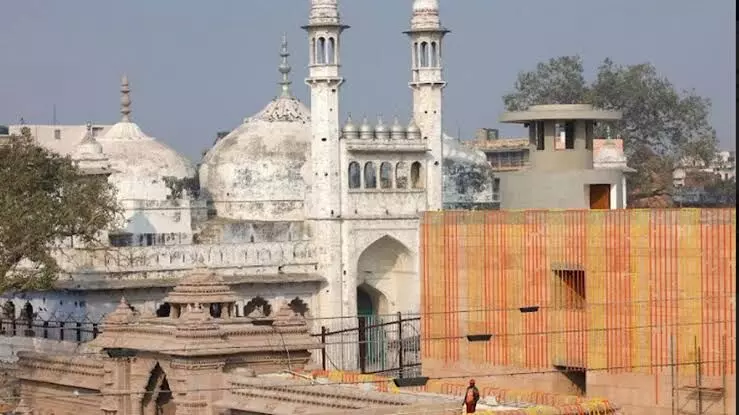
Gyanvapi Case: Police files case after judge who ordered survey receives 'threat' letter
text_fieldsVaranasi: The UP police on Thursday said that a case has been registered over a "threat letter" received by the judge who had ordered a court-monitored survey of the Gyanvapi mosque complex in Uttar Pradesh's Varanasi.
"A joint team of Varanasi police and the crime branch is investigating the matter," officials said. Police said they have upgraded the security for the judge and his family.
The two-page handwritten letter, purportedly sent by the president of the Islamic Aagaz Movement, a Delhi-based outfit, questions the order passed by Civil Judge (senior division) Ravi Kumar Diwakar.
Citing a threat to his life, judge Diwakar had also written to top Uttar Pradesh officials - the Additional Chief Secretary (Home), the Director-General of Police (DGP), and the Varanasi Police Commissionerate, demanding appropriate action.
The letter refers to the filming of the mosque that the judge had ordered on April 26 in a case where five women petitioners have sought year-long access to a shrine behind the mosque. The women also claim that there are idols of Hindu gods and goddesses inside the mosque complex.
The letter was posted on June 4 and was written on a letterhead that carried a Delhi address, police had earlier said.
"You have made a statement that inspection of the Gyanvapi Masjid complex is a normal process. You are an idol worshipper, you will declare the mosque a temple. No Muslim can expect the right decision from a 'kafir, murtipujak' Hindu judge," the purported threat letter said.
In the filming report submitted to judge Diwakar on May 19, the lawyers for petitioners had claimed that the mosque houses a 'Shivling'.
The claim was disputed by the mosque committee members who said that the structure was part of a fountain in the wazookhana used by devotees to perform ritual ablutions before offering namaz.
The Supreme Court had transferred the case from civil judge Ravi Kumar Diwakar to District Judge AK Vishvesh on May 20, looking at the "complexities" and "sensitivity" of the issue.























